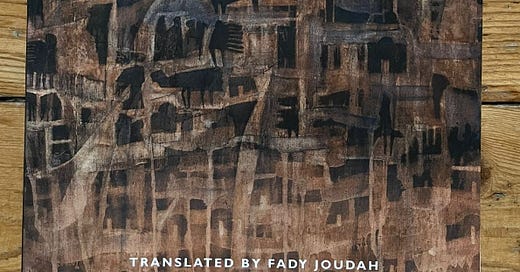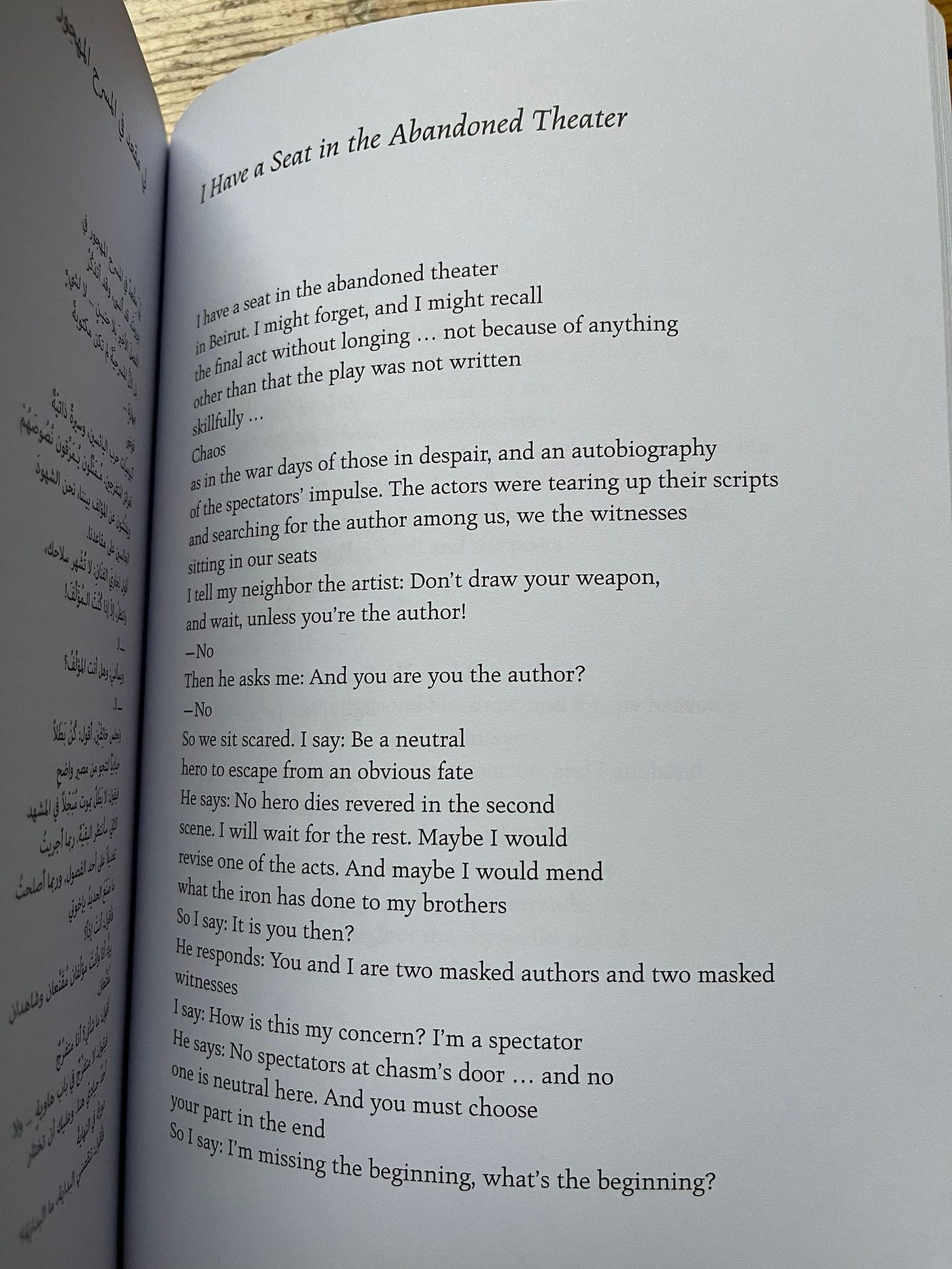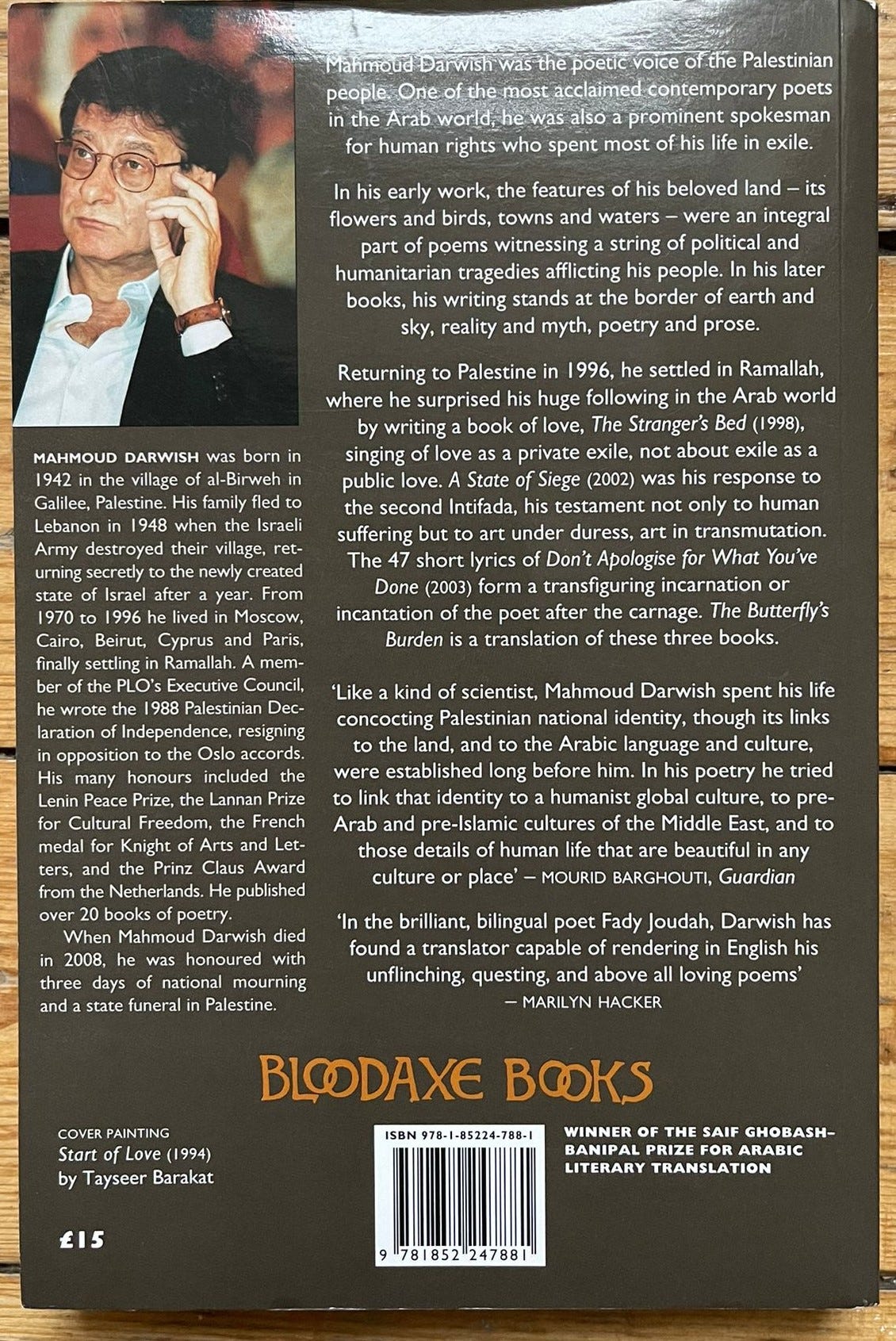To commemorate the anniversaries of their deaths, this is the first of two posts on poets persecuted in their own countries.
And they searched his chest
But could only find his heart
And they searched his heart
And could only find his people
Palestinian Poet Mahmud Darwish died 9 August 2008, aged 67, in exile in Houston, Texas, three days after heart surgery.
This week, I am delighted to welcome again guest writer, student Mustafa Wasim, who shares what he has learnt from studying Mahmud Darwish’s poetry for A-Level Literature coursework. Here is his article:
The Timeless Voice of Resistance: Mahmoud Darwish
As an A-Level English Literature student with a deep interest in the intersections of poetry, politics, international relations, and cultural identity, I chose to delve into the works of Mahmoud Darwish for my coursework. After analysing various poems from his anthology ‘The Butterfly’s Burden’, I have gained a deeper appreciation for his ability to link personal and collective experiences.
Darwish, a voice for Palestinian resistance, offers a diverse array of themes that resonate with the struggles and hopes of indigenous people. His work is not only a testament to the Palestinian experience but also a broader commentary on displacement, identity, and resistance that remains influential today.
My decision to focus on Mahmoud Darwish emerged from a desire to understand how literature can serve as a powerful vehicle for cultural preservation. Darwish's resilience for Palestinian rights remains relevant today, especially in light of the ongoing genocide faced by Palestinians. His poetry, a testament to the Palestinian struggle, continues to resonate as a powerful call for justice and recognition. Darwish’s work serves not only as a cultural artefact but also as a rallying cry against the systematic oppression and violence inflicted upon Palestinians.
Without a doubt, Darwish's writings have left an indelible mark on contemporary literature and political discourse. His portrayal of indigenous resistance is not confined to historical context but continues to inspire ongoing movements for justice. For instance, his poems are frequently taught through education.
I Have a Seat in the Abandoned Theatre
What I learnt from studying ‘The Butterfly’s Burden’ is that Darwish delves into the theme of cultural assimilation, reflecting on the struggles faced by indigenous communities as they navigate and adapt to foreign cultural environments. For instance, among Darwish's extensive oeuvre, the poem "I Have a Seat in the Abandoned Theatre" stands out to me for its deeply haunting imagery and reflective tone. I was able to bring up the fact that Stuart Hall theorises that cultural identity is not fixed but an ever-evolving production. This made me realise Darwish's portrayal of the abandoned theatre aligns with Hall's view, presenting it as a dynamic space where cultural identities are continually produced.
The traditional theatre, a venue for storytelling and artistic expression, symbolises the rich cultural heritage it represents. However, by depicting it as "abandoned," Darwish underscores the transformation and displacement of cultural traditions, emphasising the shifts that occur due to cultural assimilation. A specific part I love is the metaphor of how "love is a broken mask" for it illustrates the complexities of navigating emotions within a hybrid identity. ‘’You and I are two masked authors and two masked witnesses’’. What calls to me is how Darwish suggests that external influences can distort or obscure genuine emotions, creating a facade that hides true feelings. This metaphor emphasises the struggle of emotional expression within the context of assimilation, highlighting the emotional detachment or inauthenticity that can arise from the collision of cultural elements.
In analysing this poem, I was struck by Darwish's ability to convey profound emotions through simple yet evocative language. The poem's structure, with its subtle shifts in tone, mirrors the ebb and flow of memory and longing. This exploration of personal and collective history deepened my appreciation for Darwish's craft and his capacity to articulate complex emotional landscapes.
Engaging with Mahmoud Darwish's poetry has been an enlightening experience, both academically and personally. Through my coursework, I gained a deeper understanding of how literature can serve as a form of resistance and a means of preserving cultural identity. This perspective has enriched my overall approach to literature, encouraging me to seek out diverse views, especially when their voices go unheard by western powers. As I move forward in my studies, I carry with me the lessons learned from Darwish's work, inspired by his unwavering commitment to truth. - Mustafa Wasim -
Many thanks to Mustafa for sharing his thoughts and knowledge. I will be ordering The Butterfly’s Burden from my local bookshop!
Writing Challenge
Is there an author who has made a strong impression on you through their writing? Can you identify what it is about their writing that changes how you think, or leaves a lasting impression? In two or three paragraphs, try to explore these questions. If you would like your ideas to be included in a future article on the writers that change us, please send to julie@julielaminauthor.com
If you want to be brave and write a full-length article, or you have an idea for one that you can contribute to, please get in touch: julie@julielaminauthor.com






